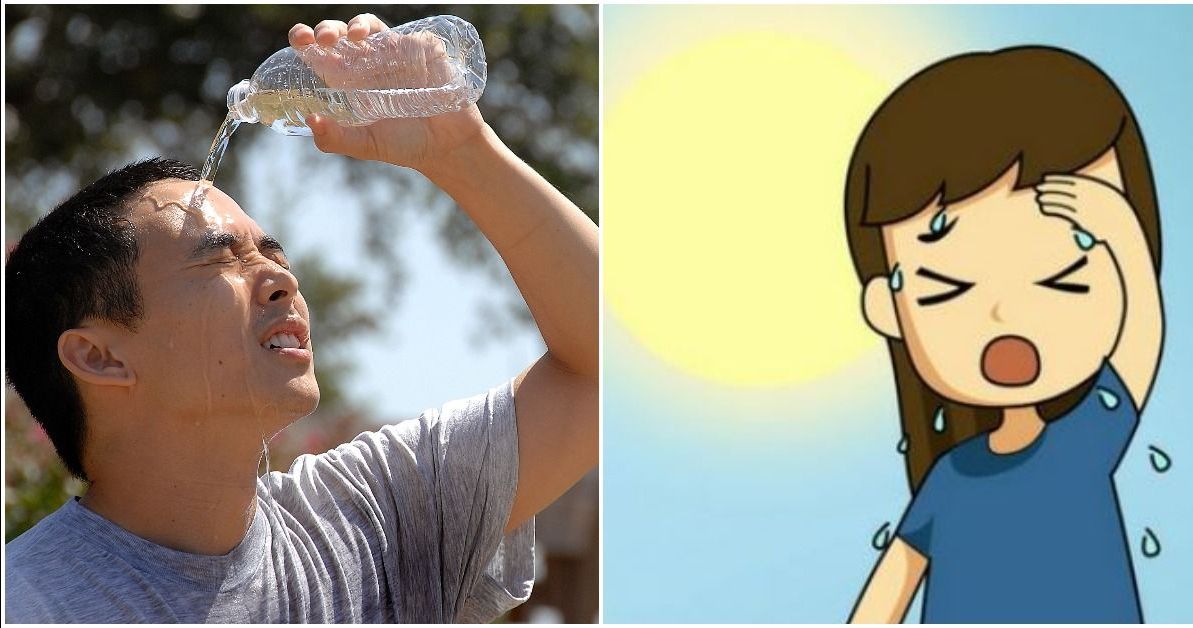A few years ago my brother was playing in a summer soccer league, and our entire family showed up to watch him from the sidelines.
You can imagine how horrified we were when he collapsed on the field. Just moments before he had been smiling, playing, and talking with his friends.
Even though my brother was healthy, and drank plenty of water, he was still affected by heatstroke. Thankfully, he was treated quickly and there was no lasting damage.
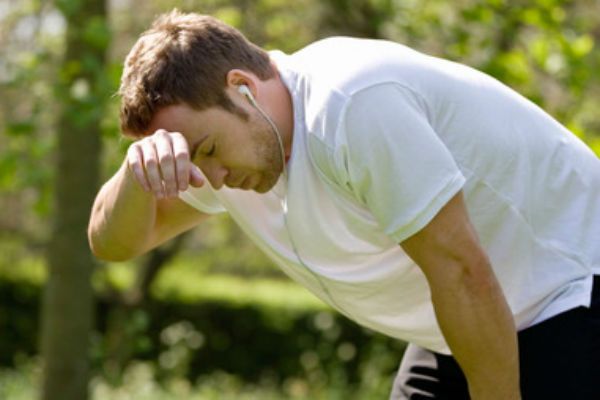
Not everyone is so lucky. Heatstroke can strike suddenly, and proves deadly in some some cases.
That's why everyone should learn to spot the seven most common symptoms of heatstroke, and how to treat this condition.
What causes heatstroke?
Heatstroke is a simple but devastating condition. Basically, your body overheats to the point where your organs and central nervous system can't cool you down.
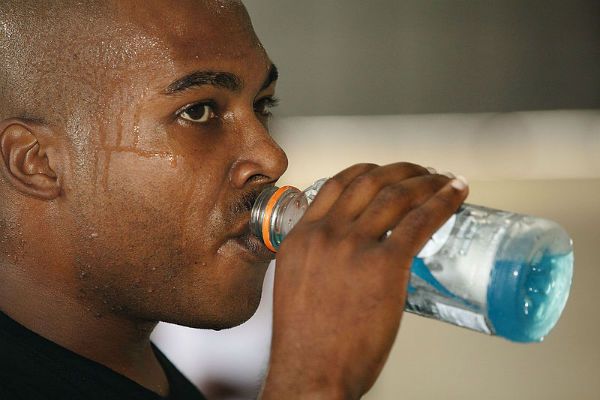
As your internal temperature continues to rise, it can permanently damage your brain, kidneys, and other organs.
This is why it's so important to recognize and treat heatstroke quickly: the longer your temperature stays up, the more damage it can do to your body.
There are also two types of heatstroke, and the differences are important:
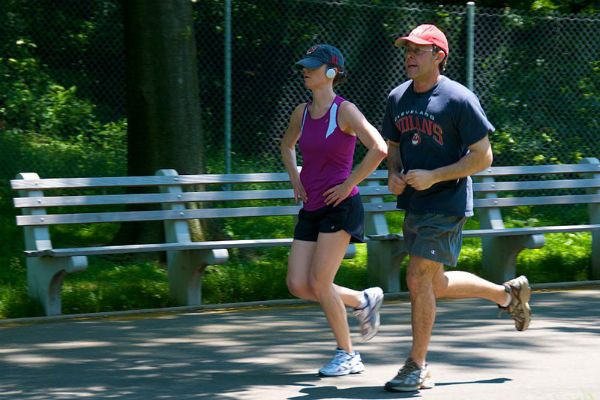
Classic or traditional heatstroke is caused by high temperatures that warm your body, and the symptoms can appear gradually.
Exercise heatstroke is called by overexerting your body. It can set in very quickly, even when it's not blazing hot outside.
But both types of heatstroke share the same telltale symptoms:
1. Confused behavior
As your body struggles to cool down, your brain and nervous system are put under a lot of stress.

There will be signs all over your body that you're struggling, including slurred speech and trouble walking.
Changes in mood, including agitation and irritation, are also bad signs.
Finally, patients may become delirious and even have seizures if they're not treated quickly.
You can test someone's condition by asking familiar questions (Where do you live? What's you birthday?) and seeing how they react.
2. Flushed skin
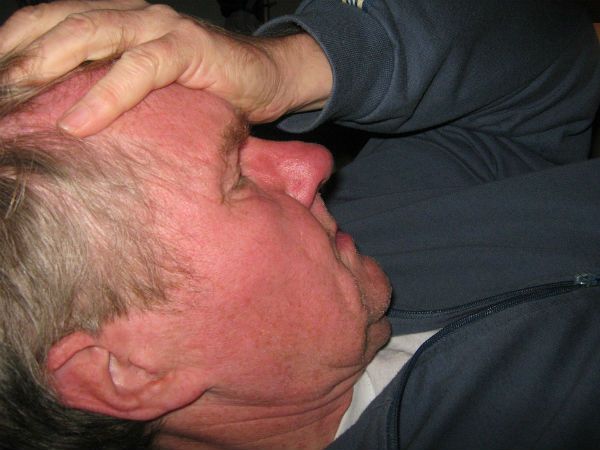
While sunburned skin can make it harder to control your body temperature, even healthy skin will turn red from heat stroke.
Blood flows to your skin to try and cool down. If your entire body starts to look red, it's time to head for the shade.
3. Rapid, shallow breathing
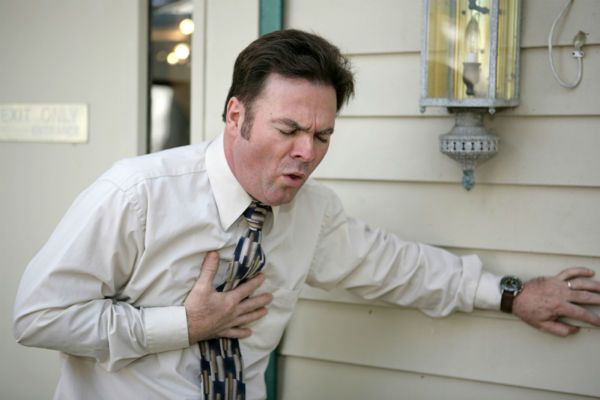
Every organ in your body will start to struggle as they overheat, and some of the symptoms are more noticeable than others.
You'll have trouble breathing as you heat up, both because your lungs and heart are under stress.
Your heartbeat may either speed up or slow down noticeably from the stress, because it has to pump harder to try and cool you down.
4. A high body temperature
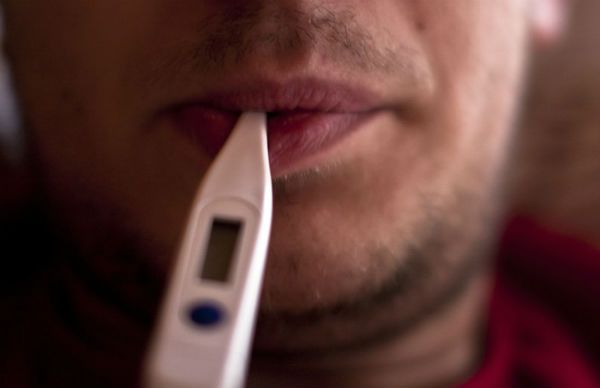
Don't just check the temperature outside to see if you're in danger, check how your body feels too.
Any internal temperature over 104 F puts you at risk, but you won't have time to break out a rectal thermometer in an emergency, and the oral versions aren't accurate enough.
Try to identify if your skin feels warm to the touch, even parts that have been in the shade like the back of your legs.
If your skin doesn't begin to cool down after getting out of direct sunlight, get help.
5. Unusual sweating

You should also check your skin for sweat, or lack of sweat, because both are symptoms of heatstroke.
In cases of classic heatstroke, your skin will usually feel dry because your body is dehydrated.
But in heatstroke brought on by exercise, skin may feel clammy. That's because your body is dumping out sweat in high volumes, trying to regulate your temperature.
6. Nausea and vomiting
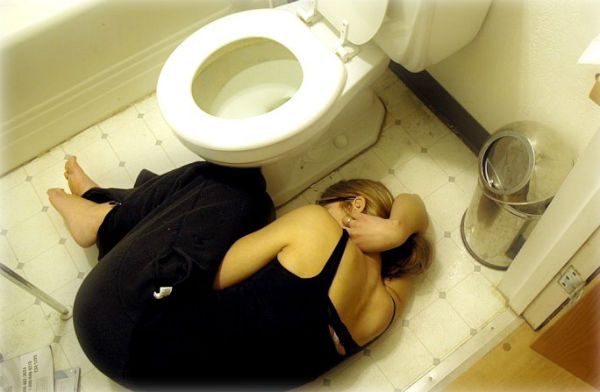
Damage to your organs caused by heat stroke can cause a variety of reactions.
If your stomach takes the brunt of it, you may feel sick and throw up.
This could be a very serious symptom: sunstroke sometimes damages your stomach lining, which can harm other nearby organs if they're not treated quickly.
7. A throbbing headache

Dehydration can cause nasty headaches, and so can the extra stress on your body's nervous system.
Be sure to watch out for other symptoms of dehydration, including bad breath, fatigue, and muscle cramps.
How can I treat heatstroke?
Just like the causes of heatstroke, the treatment is simple and obvious.
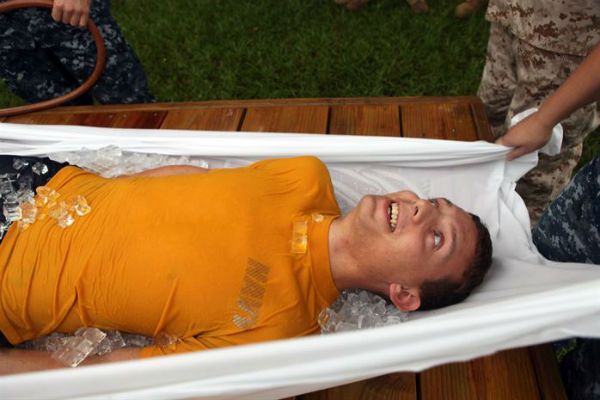
If you think you or someone else is experiencing heat stroke, call for medical help immediately.
Get the patient out of direct sunlight, and take off any excess clothing so they can cool down.
Use a fan, a wet sponge or towel, ice packs, or a water bottle to help them cool off. Apply them to the forehead, neck, armpits, back, or groin to cool off their entire body more quickly.
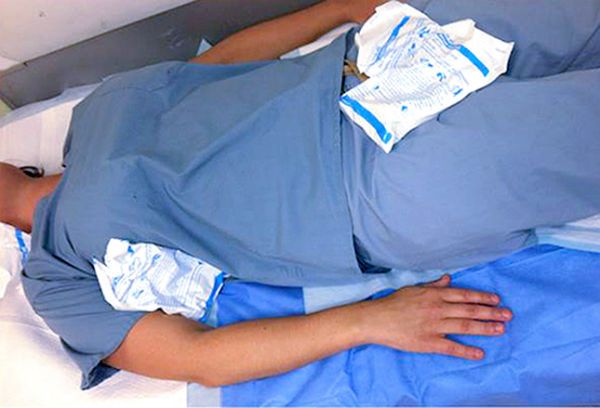
Encourage them to drink water or a sports drink to replenish their fluids (if they're conscious).
Be careful about applying too much ice to someone very young, old, or suffering from other health conditions, because it could make things worse.
How can I prevent heatstroke?
Avoiding heatstroke in warm weather involves minding your behavior, but if you suffer from conditions like high blood pressure, diabetes, or heart disease, you need to be extra careful.
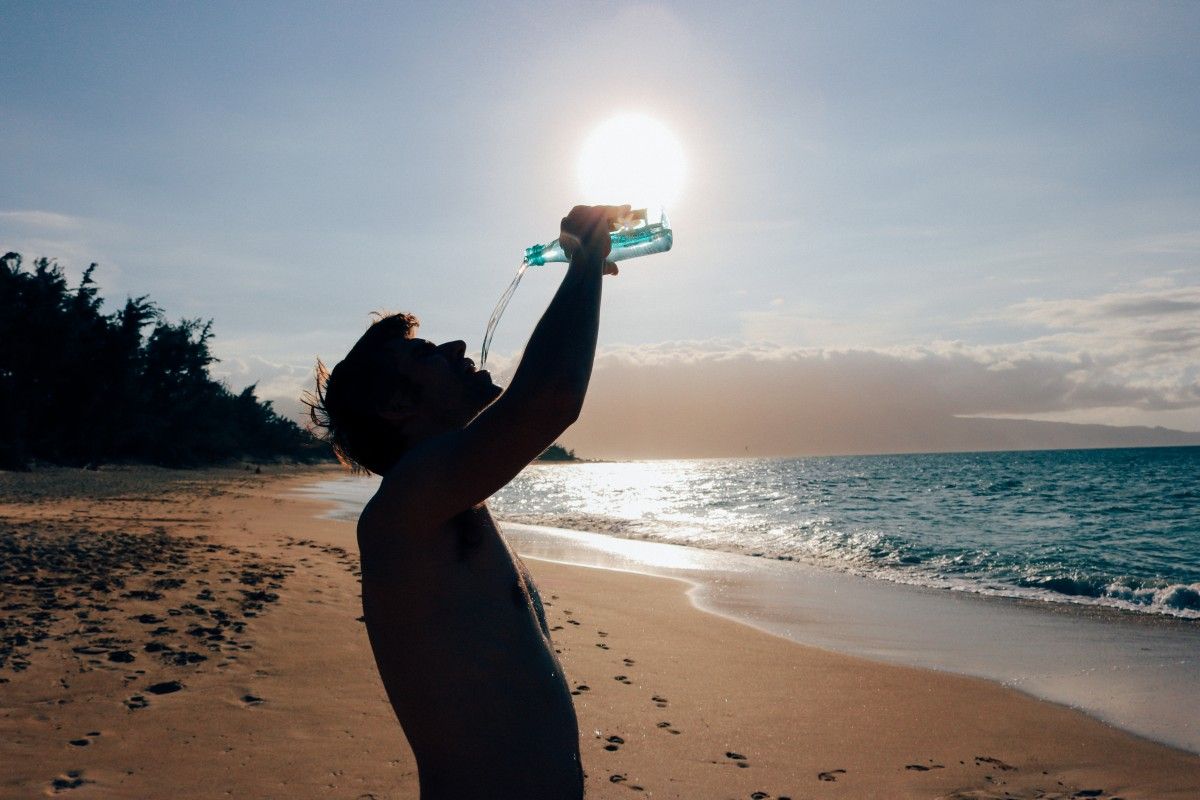
Watch out for heat advisories and follow these tips on warm days:
- Dress for the weather (wear light clothes and a sunhat) and plan to be out of the sun at midday.
- Drink plenty of fluids, especially before exercise or after you've been sweating.
- Find a strong sunscreen (at least 30 SPF or higher) and apply it often. You'll need more lotion every two hours, or after you sweat or swim.
- Avoid drinking too much alcohol, which can make it harder for your body to regulate its temperature. Stick to water or fruit juice instead.
- Check if your medication can make your body "run hot." Beta blockers and antidepressants are known to do this.
If you have to work outside in the heat, start slowly and take regular breaks out of the sun to rest and rehydrate.
Enjoy the warm weather, but stay safe!
Here are 10 ways your body tells you to drink more weather.
And these are the 15 best sunscreens for every skin type.
